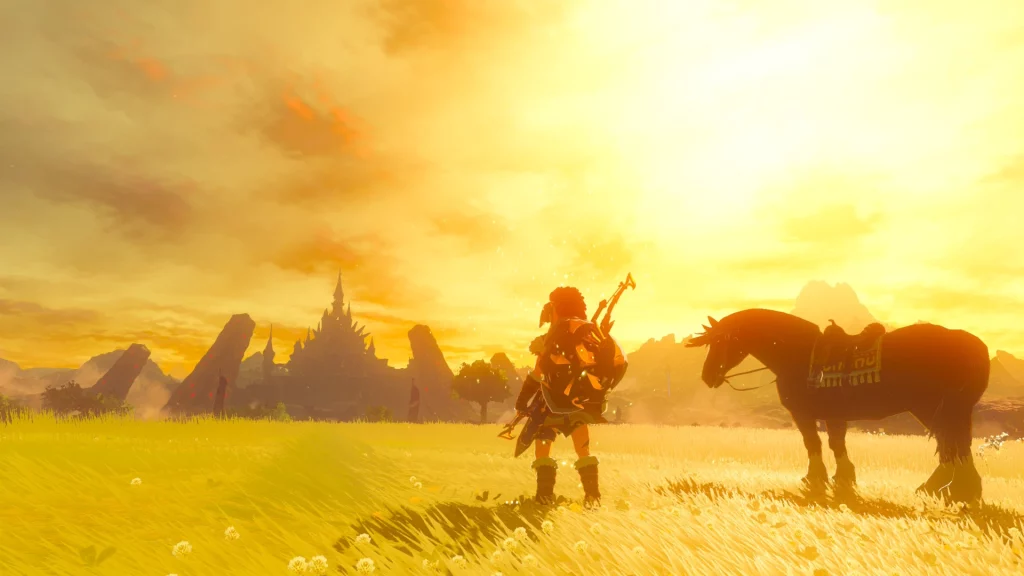
Video game backlogs. Lists of games that you’ve purchased but haven’t played. My YouTube recommendations are filled with videos discussing how to manage, organize, and work through them. Entire websites have been created with the purpose of tracking them. There seems to be a considerable amount of people who are buying games, accumulating them, and not playing them to warrant all of this content. Truthfully, I enjoy discussions on gaming backlogs for the sort of “tech philosophy” questions they often provoke, but backlogs can become an unnecessary point of stress if undue concern is put on them.
Prior to the last couple of years, I never had a gaming backlog, but after taking advantage of enough deep-discount sales and receiving some generous gifts, there are about 50 games that I own but haven’t yet played. This number spans multiple platforms: PC (Steam, GOG, Epic), Xbox (Series X, 360), and the Nintendo Switch 2. That’s a lot of video games, especially considering the majority are RPGs that demand a lot of playtime. Some would believe this is a problem, that I’ve wasted money on games I haven’t played and need to consume, consume, consume until I’ve repaid my gaming debt. I think this is a harmful mindset.
Backlogs are what you want them to be. If you think of them as these endless and frightening lists, that’s the role they’ll take in your online life. Now, if you’re someone who buys games with no plans to play them, I think that’s an entirely different conversation, but there shouldn’t be shame attached to purchasing something with the intent to play it later. In this case, a backlog should really be taking the form of a practical, consolidated tracker. Practical, because you need to reserve the energy, time, and money you’ve allotted for gaming to titles you are truly interested in; Consolidated, because combining all games across platforms paints a more realistic picture of what you own, given that you play on more than one device or storefront. Keeping track of your backlog in this way can be helpful, but it should never feel like a chore to maintain. If it does, you should just play games. Gaming shouldn’t be a burden, and if tracking a backlog makes it one, you shouldn’t bother.
This leads to another concern I have with backlogs: avoid playing games solely for the sake of completion. Yes, there’s a great sense of accomplishment to hitting the end credits, but backlogs can make games feel mechanical; like empty checkboxes with the sole purpose of getting crossed off the list. It’s a side effect of making the games you own feel like the only point is completing them, but that shouldn’t be the case. Games are an art form, and they should be played with the goal of having fun. If you’re not enjoying yourself, don’t force yourself to keep going. This feeds back into the notion that gaming is meant to be a hobby, not a chore. Moreover, a backlog should help you pick what you want to play, it should not act as a list of orders that say you must complete the self-imposed criteria of beating every game you own. Play games, have fun.
With all of this in mind, I did start to keep track of a centralized backlog for my games. I have a list of games I own, games I’m playing, and games I want. Because there are a substantial amount of games I want to play across multiple platforms, it’s helpful for me to visualize what’s on the horizon while keeping everything in one place. I started doing this about a year ago, and I’ve really enjoyed the process of building my backlog and the act of being intentional. I don’t let its maintenance become a chore, and I don’t treat it like a second job. At the end of the day, these are the games I want to play, and the backlog’s sole purpose is to help me have fun.
I think it’s really easy to view and use backlogs incorrectly. They could make you feel wasteful or turn a hobby into a second job. I certainly wouldn’t recommend that everyone keep track of one. However, if you’re rediscovering a passion for gaming and have a large chunk of games that you can’t wait to try, then a) you’re in the same chapter of life as myself, and b) maintaining a backlog might just work for you, so long as you prioritize fun over completion.